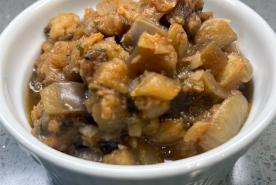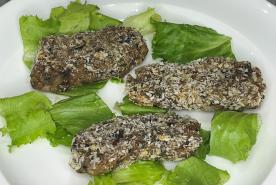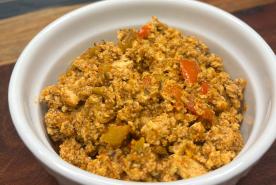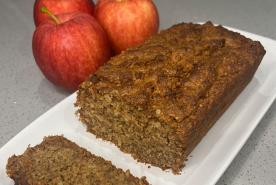Last Updated: January 02, 2023
Medically reviewed by NKF Patient Education Team
Whole grains provide many nutritional benefits over refined grains as the bran, the edible outer layer, contains fiber and antioxidants, and the germ, the inner part, offers a variety of vitamins and minerals. In refined grains, these nutritional benefits are lost.
Why are whole grains a superfood?
- Whole grains are a great source of dietary fiber. A ½ cup serving can provide anywhere from 1 to 6 grams of dietary fiber.
- They are excellent sources of vitamins and minerals such as iron, zinc, magnesium, and vitamin E. They also offer a variety of antioxidants.
- Whole grains are naturally low in sodium. A ½ cup serving of most whole grains will offer approximately 10 mg or less of dietary sodium. It is important to note that one should look carefully at the sodium content of preseasoned whole grains in which sodium may be added to the packaged product.
- Whole grains have a long shelf life and are often inexpensive.
- Studies have shown that whole grains offer benefits for heart disease, hypertension, diabetes, and kidney disease.
Whole grains and kidney disease
Whole grains may contain higher amounts of potassium and phosphorous per serving compared to refined grains, however, phosphorous in plant-based foods is not absorbed completely. Most whole grains contain less than 200 mg of both potassium and phosphorous per ½ cup serving and therefore can be included in any of the following kidney conditions and treatments:
- Chronic Kidney Disease (CKD)/Transplant
- Hemodialysis (3 times/week)
- Daily Home and Nocturnal Hemodialysis/Peritoneal Dialysis
- Kidney Stones
Whole grains may offer additional benefits for those with kidney disease by helping with bowel regularity, blood pressure control, cholesterol levels, and blood glucose control. Talk with your kidney dietitian to learn more about how to incorporate whole grains into your eating pattern.
Cooking tips
Many whole grains prior to cooking can be toasted to provide a nutty flavor. In a dry skillet heat on medium-high and toast, stirring frequently for several minutes, then cook per package directions.
Add more flavor to your grains with spices and herbs. When you toast your grains add several of your favorite salt-free spices and herbs to the pan. Toasting spices and herbs can also help enhance flavor.
Here are three flavors to try:
Per 1 cup of dry grains, add:
- 1 Tbsp Chili Powder, 1 Tsp Cumin, 1 Tsp Coriander
- 1 Tbsp Dried Oregano Leaves, 1 Tsp Garlic Powder
- 1 Tbsp Chopped Rosemary, 1 Tsp Garlic Powder, ½ Tsp Onion Powder
Recipe with whole grains
Peanut Butter Oatmeal
Makes: 4 servings. Serving size ⅔ cup ingredients
Ingredients
- 1⅓ cups uncooked oatmeal
- 4 tablespoons peanut butter
- ¼ cup honey
Instructions
1. Cook oatmeal in water following the directions on the package, omit the salt.
2. Divide cooked oatmeal into 4 bowls and dollop 1 tablespoon of peanut butter and 1 tablespoon of honey in each bowl.
Calories............................ 238
Carbohydrates................. 35 g
Dietary Fiber.................... 3 g
Protein.............................. 6 g
Fat.................................... 10 g
Saturated Fat................... 2 g
Sodium............................. 71 mg
Potassium........................ 174 mg
Phosphorus...................... 138 mg
Calcium............................ 20 mg
Want to save this information for later?
Download the National Kidney Foundation’s Fact Sheet: Kidney-Friendly Superfoods: Whole Grains
*This content is provided for informational use only and is not intended as medical advice or as a substitute for the medical advice of a healthcare professional.

















